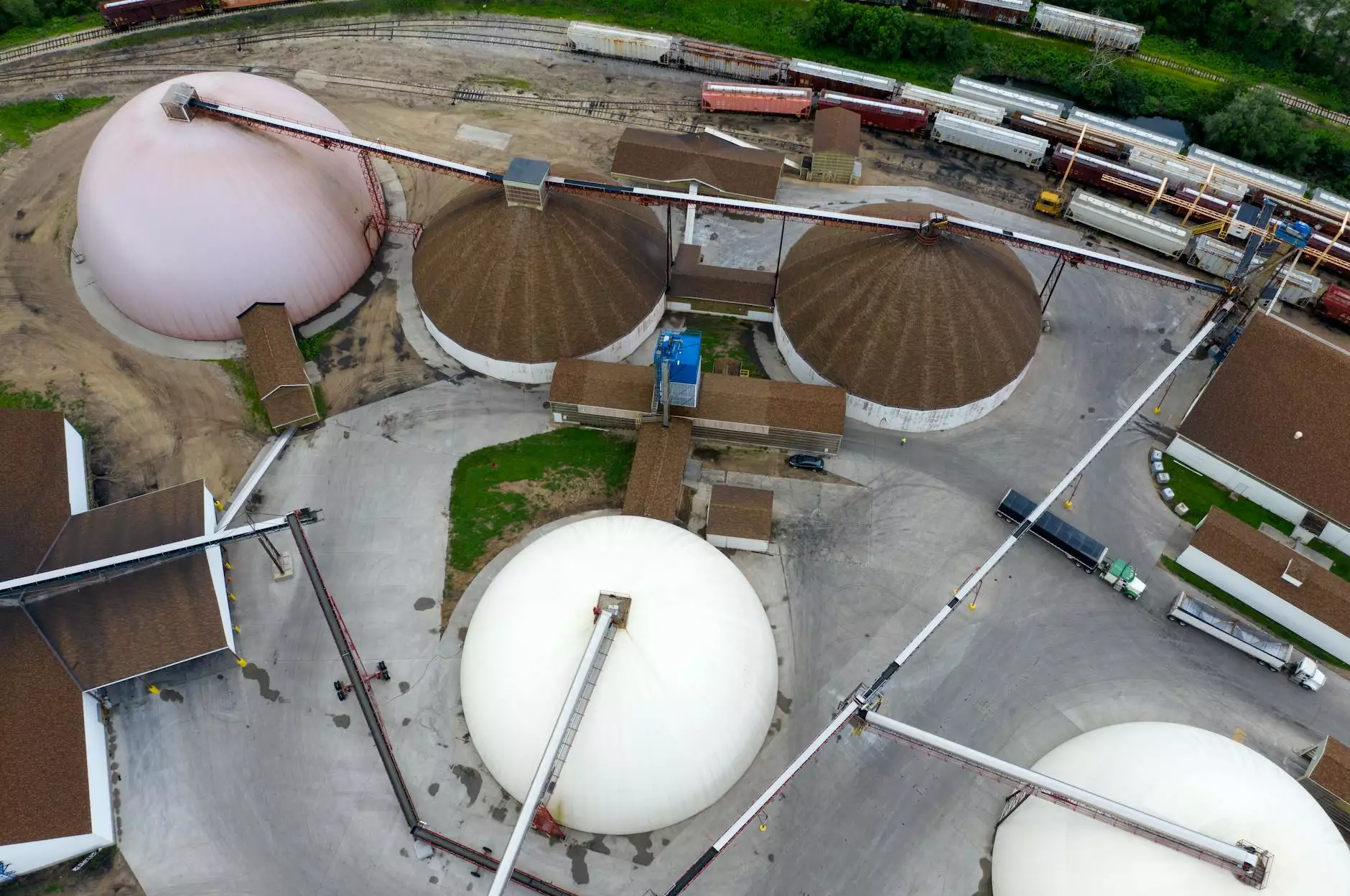Why is Grain Stored in Silos? Understanding the Importance of Grain Storage

In the realm of agriculture, effective storage solutions are vital for maintaining the quality and integrity of harvested grains. One of the most prominent and efficient methods of grain storage is the use of silos. But why is grain stored in silos? This article delves deep into the multifaceted reasons behind this practice, examining its advantages, operational mechanisms, and significance in the modern farming landscape.
The Functionality of Silos
Silos serve as large storage containers specifically designed to hold cereals and grains. They can vary in size and shape, from the vertical cylindrical structures commonly seen on farms to more unique designs adapted for specific needs. The primary function of these silos is to provide a controlled environment that retains the quality of stored grains. This results in numerous benefits, which we'll explore in detail.
Preservation of Grain Quality
One of the main reasons for storing grain in silos is to protect it from external factors that could degrade its quality. Grain is highly susceptible to damage from moisture, pests, and spoilage. By keeping grain in silos, farmers can create an environment that minimizes these risks.
- Moisture Control: Silos help in managing the moisture levels within the stored grain. Maintaining a low moisture content is crucial, as high moisture can lead to mold growth and spoilage.
- Pest Management: Silos can be sealed to prevent pests, such as rodents and insects, from accessing stored grain, thus reducing the chances of contamination.
- Temperature Regulation: Many modern silos are equipped with temperature control systems, which are essential for preserving the grain’s quality over extended periods.
Efficiency in Storage and Handling
The efficiency of grain storage is significantly enhanced through the use of silos. Unlike traditional storage methods that may require more manual labor and space, silos facilitate better organization and management of grain stocks.
- Maximized Space Utilization: Silos occupy a small footprint while providing a substantial storage capacity, thus maximizing space on the farm.
- Ease of Access: Grain can be easily loaded and unloaded using machinery, which reduces the labor-intensive processes involved in managing large quantities of grain.
- Integrated Monitoring Systems: With technological advancements, many silos are now equipped with monitoring systems that provide real-time data on grain conditions, ensuring optimal storage practices.
Economic Benefits of Grain Storage in Silos
Beyond preserving quality, storing grain in silos also presents various economic advantages for farmers and the agricultural industry as a whole.
Cost-Effective Operations
Investing in silo storage can lead to long-term cost savings. By ensuring that grain remains in good condition, farmers can avoid losses that typically arise from spoilage or pest damage.
- Reduced Waste: Effective storage minimizes food waste, which is a significant concern in agriculture. According to estimates, up to 30% of grain can be lost due to inadequate storage methods.
- Market Timing: Silos allow farmers to store their harvest until market prices are favorable, enabling better profitability. By managing supply effectively, farmers can sell their product when demand is highest.
Improved Supply Chain Efficiency
The integration of silos into the agricultural supply chain promotes a more streamlined operation. This efficiency not only benefits individual farmers but also has positive implications for the broader economy.
- Facilitated Shipping: Large quantities of grain can be shipped more efficiently from silo storage, reducing transportation costs and improving delivery times.
- Consolidation of Resources: Farmers can pool resources by using centralized silos, allowing for better pricing and distribution of grain to processors and retailers.
Sustainability and Environmental Impact
In an age where sustainability is paramount, the use of silos for grain storage also aligns with environmentally-friendly practices in agriculture.
Waste Reduction
As previously mentioned, proper grain storage helps to minimize waste. This is crucial not just for economic reasons but also for reducing the environmental footprint of farming operations.
- Less Spoilage, Less Waste: By ensuring stored grain does not spoil, we can drastically reduce the amount of waste generated by agricultural practices.
- Resource Efficient: Silo storage allows farmers to use resources more efficiently, resulting in a lower demand for future farming inputs, such as fertilizers and pesticides.
Climate Resilience
By utilizing silos, farmers can better manage their resources and adapt to changing climate conditions. This adaptability is essential for ensuring long-term viability and resilience in farming.
- Enhanced Storage Practices: Silos can be designed to withstand extreme weather events, thus securing the grain during storms or adverse conditions.
- Maximized Yield Potential: With the ability to store excess grains produced during bumper harvest years, farmers can maintain operations even when crop yields fluctuate due to climate variability.
Conclusion: The Indispensability of Silos in Modern Agriculture
In conclusion, understanding why grain is stored in silos reveals the immense value they offer to the agricultural sector. From preserving grain quality to enhancing economic efficiency and promoting sustainable practices, silos play a crucial role in modern farming. As the demand for food continues to grow globally, the importance of effective storage solutions like silos will only increase, ensuring that farmers can meet this challenge successfully.
Farmers and agricultural businesses, like TSGC Inc., benefit greatly from investing in advanced storage solutions such as silos. This not only supports individual farms but also enhances the overall efficiency and sustainability of the agricultural industry.
As you evaluate your grain storage options, consider the multifaceted benefits of silos. They are not just containers; they are a strategic asset in the quest for agricultural efficiency, quality, and sustainability.









